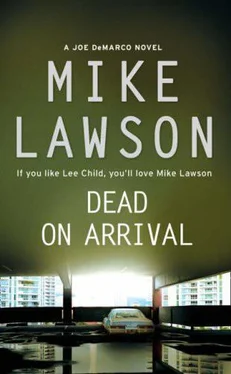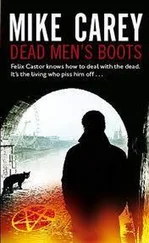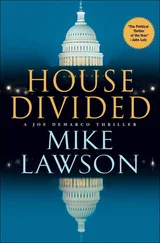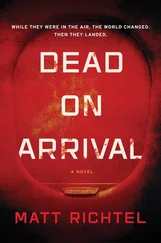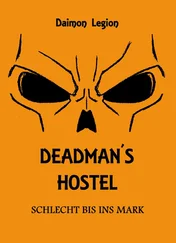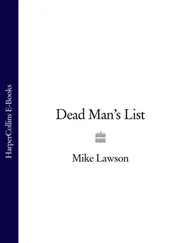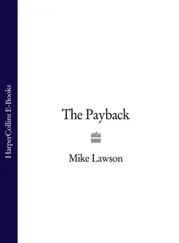Mike Lawson - Dead on Arrival
Здесь есть возможность читать онлайн «Mike Lawson - Dead on Arrival» — ознакомительный отрывок электронной книги совершенно бесплатно, а после прочтения отрывка купить полную версию. В некоторых случаях можно слушать аудио, скачать через торрент в формате fb2 и присутствует краткое содержание. Жанр: Триллер, на английском языке. Описание произведения, (предисловие) а так же отзывы посетителей доступны на портале библиотеки ЛибКат.
- Название:Dead on Arrival
- Автор:
- Жанр:
- Год:неизвестен
- ISBN:нет данных
- Рейтинг книги:5 / 5. Голосов: 1
-
Избранное:Добавить в избранное
- Отзывы:
-
Ваша оценка:
- 100
- 1
- 2
- 3
- 4
- 5
Dead on Arrival: краткое содержание, описание и аннотация
Предлагаем к чтению аннотацию, описание, краткое содержание или предисловие (зависит от того, что написал сам автор книги «Dead on Arrival»). Если вы не нашли необходимую информацию о книге — напишите в комментариях, мы постараемся отыскать её.
Dead on Arrival — читать онлайн ознакомительный отрывок
Ниже представлен текст книги, разбитый по страницам. Система сохранения места последней прочитанной страницы, позволяет с удобством читать онлайн бесплатно книгу «Dead on Arrival», без необходимости каждый раз заново искать на чём Вы остановились. Поставьте закладку, и сможете в любой момент перейти на страницу, на которой закончили чтение.
Интервал:
Закладка:
Ten minutes after the F-16 pilot had identified the tail numbers on the Cessna, FBI agents had been dispatched to Reza’s home in Arlington. Inside the house they found Reza’s wife and two children — a boy of eight and a girl of eleven — all dead. They’d each been shot once in the head with a.9mm automatic that had been found sitting in the middle of the Zarifs’ dining room table like some sort of ugly lethal centerpiece. Reza’s fingerprints were on the gun.
One sentence in the article said that the FBI had found a document in Reza’s house that indicated he had ties to al-Qaeda, but that’s all the FBI would tell the press. The Bureau claimed that the specifics of the document were classified because disclosing them could affect other ongoing operations, which was a fairly standard explanation used by the feds when they wanted to keep something from the media. Whether the explanation was true or not was a different issue.
Had Reza Zarif been an Iranian national who had slipped into the country using a false passport, his actions might have made some sense: just another radical Muslim who had decided to strike a blow for his brethren in the jihad and sacrificed himself and his family in the process. But that’s not who Reza Zarif had been.
Reza and his brother, Hassan, were Americans, born and raised in Boston. They attended public schools, and then Reza went to Boston College where he obtained a law degree. After law school, he moved to Washington, worked briefly for the Department of Justice, then established a small private practice near his home in Arlington, Virginia. A large number of his clients had been of Middle Eastern descent and he dealt mostly with mundane matters related to wills, taxes, and property. And he prospered.
But all this changed with 9/11. Reza became a fervent advocate for American Muslims. He was concerned that, in the backlash following the attacks, Muslims would suffer the same fate as Japanese Americans had following Pearl Harbor. He objected loudly and publicly to the Patriot Act and defended several Muslims, all American citizens, who had been detained or incarcerated for allegedly having terrorist connections.
Reza was handsome and articulate and passionate. He became an occasional guest on NOW and The News Hour with Jim Lehrer , and when Senator William Broderick made his famous speech, Reza became one of his most vocal opponents. Two weeks before his death, Reza appeared with Broderick on Meet the Press — and he lost it. He absolutely lost it.
The morning of the show he’d flown in from New York, where he had been defending a client, and had received disproportionate attention from airport security personnel. So when he arrived on Russert’s set he was already angry. For a while he maintained his composure with Broderick, but then Broderick made a remark about how performing background checks on American Muslims seemed like a pretty sensible thing to do, them being the people most likely to be terrorists. It wasn’t so much what Broderick said as the way he said it, as if it was no big deal — and Reza just went nuts. He rose up from his chair, pointed his finger at Broderick’s pale face, and screamed at him for several minutes, spittle flying from his mouth. Russert cut to a commercial when the fireworks died down, and when the show resumed Reza had left the set — which was too bad, as Broderick was then able to use the remaining air time to give his standard pitch.
Unfortunately, one of the things Reza said to Broderick was that 9/11 had occurred in part because of people like Broderick, people who made absolutely no attempt to understand the struggles of Muslims throughout the world. And maybe, Reza had said, it would take another 9/11 before Broderick and his kind would wake up.
Using less technical jargon than they normally did, the FBI concluded that Reza Zarif had just plain snapped . In the last seven years, he had dug himself into a deep financial pit because he had neglected his law practice, and he was perpetually resentful because the government’s lawyers usually kicked his ass in court. He’d lost weight, his hair had turned prematurely gray, and, always an emotional man, he’d become downright volatile, flying into rages on the slightest provocation. To help make the FBI’s point, The New York Times showed a still picture of Reza berating Broderick on Meet the Press , his eyes bugging out, his face twisted with fury, looking in general like an escapee from a mental institution. He just snapped, the FBI spokesman said.
So who should DeMarco believe: Hassan Zarif, a man who claimed his brother was not only sane but patriotic, or a legion of qualified FBI agents who had gathered a mountain of evidence and had guys with doctorates in psychology backing up their claims?
DeMarco decided that the answer to that question would have to wait until tomorrow.
He ordered a second martini.
7
As the cab cruised down Main Street at precisely thirty miles per hour, Jeremy Potter took in the neat shops, the old-fashioned lampposts, the courthouse that had been the background for a Rockwell cover on The Saturday Evening Post — and he immediately begin to relax. The last two months had been very hectic. He was so glad to be home.
For two months, he’d worked like an absolute slave. He’d spent hours on the Internet and had taken trips to Washington, New York, Philadelphia, and Trenton to observe people who often lived in minority neighborhoods and where, being a small white man of fifty-three, he’d felt quite vulnerable. And then there’d been the meetings with the two government people. Those meetings hadn’t taken long, but they’d been extremely stressful, by far the riskiest part of his assignment. But now it was finally over and he’d been successful, and Mr Lincoln had been very pleased.
He didn’t know why Mr Lincoln had asked him to do what he did, but that wasn’t at all unusual. He would be given a task — typically research, sometimes surveillance, frequently duties as a courier — but he would rarely know how his role fit into Mr Lincoln’s grand design. Come to think of it, it seemed as if this time he knew much more than he normally did. He was certainly able to see a pattern in his research, and the government men — well, in order to bribe them, although bribe may not be the correct term, he had to be very specific regarding Mr Lincoln’s expectations.
Yes, he could definitely see the outline of Mr Lincoln’s plan. He couldn’t see every detail — not how it would be executed, or why or when or by whom — but he could see enough that it made him feel uncomfortable.
In most respects, Mr Lincoln was an ideal employer. He paid well, he was invariably pleasant in conversation, and his directions were always perfectly clear. But he had always suspected that knowing too much of Mr Lincoln’s plans could be dangerous — terminally dangerous — and right now he had this little mental itch, this tickling sensation at the back of his brain, that said maybe, just maybe …?
Oh, quit being such a nervous Nelly, he told himself. He’d worked for Mr Lincoln for years. He was a trusted employee. A valued employee. And he’d been paid. He patted his chest and felt the reassuring lump of cash in the envelope in the inside pocket of his blazer. Mr Lincoln certainly wouldn’t have paid him if his plan was to harm him. That would be illogical, and Mr Lincoln was never illogical.
The cab stopped at his address. He tipped the driver exactly fifteen percent and stood for a moment on the sidewalk admiring his home. He privately thought of it as a cottage — loved his small patch of lawn, the ivy crawling up the chimney, the daisies that grew near the door — and he didn’t care one whit that his white picket fence was considered by some a cliche.
Читать дальшеИнтервал:
Закладка:
Похожие книги на «Dead on Arrival»
Представляем Вашему вниманию похожие книги на «Dead on Arrival» списком для выбора. Мы отобрали схожую по названию и смыслу литературу в надежде предоставить читателям больше вариантов отыскать новые, интересные, ещё непрочитанные произведения.
Обсуждение, отзывы о книге «Dead on Arrival» и просто собственные мнения читателей. Оставьте ваши комментарии, напишите, что Вы думаете о произведении, его смысле или главных героях. Укажите что конкретно понравилось, а что нет, и почему Вы так считаете.
